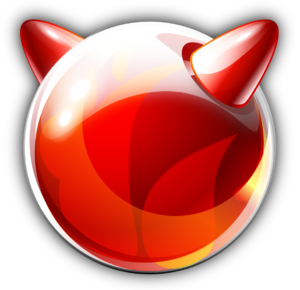We are still actively working on the spam issue.
FreeBSD
FreeBSD is a free and open-source software operating system. It is based on Unix, as opposed to merely being a clone in the vein of GNU/Linux. It has a relatively small (in comparison to GNU/Linux) but loyal userbase, many of whom are fiercely loyal to the traditional 'Unix Way'. If its derivatives are taken into account, it holds the largest userbase of all open-source operating systems that are directly derived from Unix.
Although not comparable directly to a GNU/Linux distribution - by virtue of FreeBSD not being a distribution (all of the base system is developed in a single tree rather than aggregated from elsewhere) - it shares a lot of similarities with Arch and Gentoo. Both Arch and Gentoo, for instance, have package management systems inspired by FreeBSD's Ports Tree - the (optional) Arch Build System, and Portage, respectively.
Origins
BSD stands for Berkeley Software Distribution, as in University of Berkeley, California. The university acquired a UNIX source license from AT&T in the mid-1970s. Students started to modify and improve UNIX and called this modified version Berkeley Unix or BSD. Thus, the BSD project was founded in 1976, and further development ensued in the following years. In 1989, the first public version of BSD was released, which contained code from AT&T, and that meant that BSD recipients needed a license from AT&T. Thus, the development focused towards the removal of code from AT&T. The second public release had no AT&T elements. After this second public release, BSD was ported to the 386 architecture, and it was renamed 386BSD. FreeBSD was derived from 386BSD, given that the latter's development had stagnated.
Licensing
FreeBSD is licensed under the permissive BSD license, which, unlike the copyleft GPL, allows modification and repackaging of the software into commercial derivatives, and other actions not under GPL. This has made FreeBSD the choice of many corporations when putting together hundreds of servers (Whatsapp and Netflix use it), enabled Sony to use it in their most recent consoles, and spawned many derivatives.
Derivatives
FreeBSD powers a good amount of software, like the popular NAS programs FreeNAS and NAS4Free, the PlayStation 4's OS, OS X from Apple, and JUNOS from Juniper Networks, it has achieved a strong presence, if indirectly, on the desktop and on routers.
